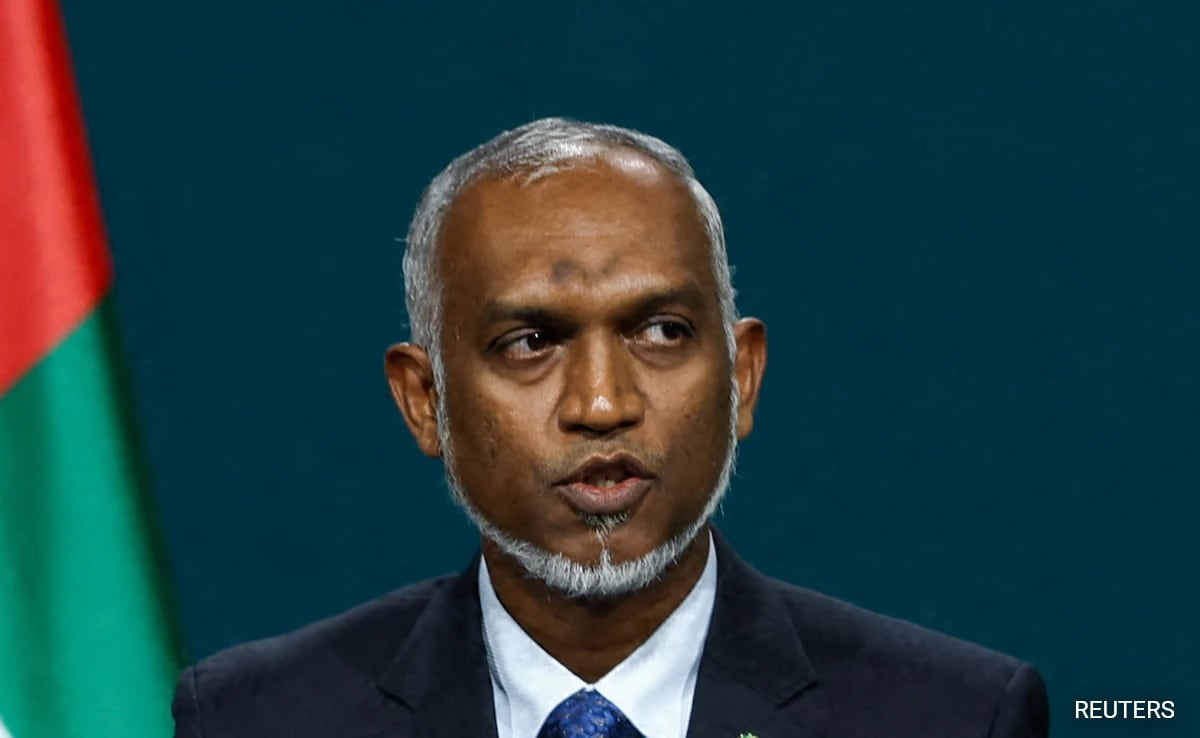
Mohamed Muizzu made a state visit to Beijing last month but has yet to visit India. (File)
New Delhi:
India has stepped up development assistance to the Maldives with projects gaining pace last year, even as ties have soured over new Maldivian President Mohamed Muizzu’s demand for Indian troops to leave his country.
As global powers jostle for influence in the Indo-Pacific region, India and China have wooed the Indian Ocean nation, which has traditionally been close to neighbour India, but recently pivoted towards China under Muizzu.
New Delhi has spent nearly 771 crore rupees, or almost twice its budgeted 400 crore on projects in the Maldives during this fiscal year, which ends in March, according to a central official and government documents.
That comes despite strained ties since Muizzu rode to office in October pledging to end the country’s “India First” policy and ensure it removed nearly 80 Indian troops.
Despite the roadblock, “development co-operation has not changed or stopped,” said an official aware of the matter, who added that New Delhi had a two-fold engagement strategy for Male.
Rather, “the pace of the projects is faster,” said the official, who spoke on condition of anonymity, attributing the swifter pace to India’s increased allocations this fiscal year.
Muizzu’s office did not immediately respond to a request for comment.
The efforts include a Rs 50-crore project for roads and bridges around Male, and two airports worth nearly Rs 13 crore each in the archipelago’s distant islands, supported through a line of credit from India.
Muizzu made a state visit to Beijing last month but has yet to visit India.
The two countries agreed this month to replace the troops by May. Centre says India provides help with humanitarian aid and medical evacuations using aircraft it has provided.
Union budget documents presented to parliament on Feb. 1 show that India spent Rs 183 crore in fiscal 2022-23, which went up to Rs 771 crore this year, a figure that is second only to neighbouring Bhutan, where India spent Rs 2,400 crore.
India has set aside Rs 600 crore in initial allocation for the Maldivian projects next year.
But Male’s closer engagement with Beijing saw it recently allow a Chinese research vessel to dock at its port, despite New Delhi’s concerns that information gathered by such ships can be used by China’s military for deployment in India’s backyard.
“The presence of extra-regional powers that impact the security of the Indian Ocean region is a red line for us,” the official said, referring to China.




